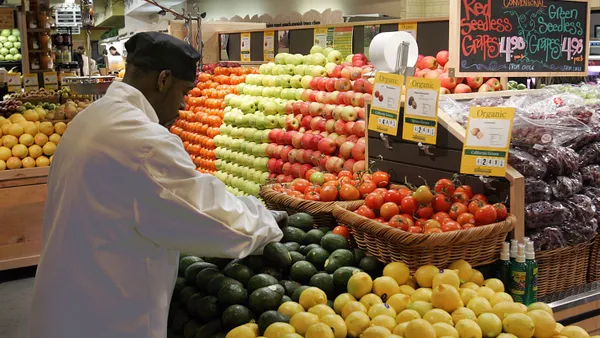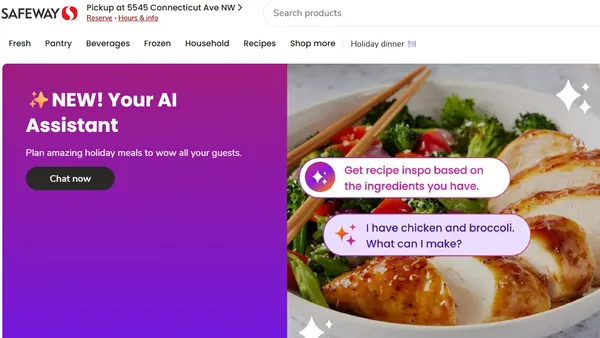By 2050, there will be an estimated 10 billion people in the world. But a new report found that it will be impossible to feed them all without major changes to the global food system.
The World Resources Institute released a 96-page synthesis study Wednesday — called "Creating a Sustainable Food Future" — that proposes broad strategies to reduce emissions and grow more food on existing agricultural lands. Executing the plan will require action from farmers, food companies, consumers and governments. Without changes, the report found that there might not be enough food for everyone and it could be impossible for global warming levels to stay under 2 degrees Celsius.
In order to feed everyone by 2050, the report says the world will need to work to close three gaps: food, land and greenhouse gas mitigation. To do this, researchers propose a 22-item "menu for a sustainable food future" to expand agricultural land, reduce beef eating, advance technology, increase fish supply and cut down on greenhouse gas emissions.
This synthesis report was developed through years of research conducted by the World Resources Institute, the World Bank Group, United Nations Environment, the United Nations Development Program and two French agricultural groups. This is only part of a longer report that will be published in the spring.
"We have to change how we produce and consume food, not just for environmental reasons, but because this is an existential issue for humans.”

Janet Ranganathan
Vice president for science and research, WRI
Although the report lays out 22 solutions that need to be achieved in 32 years, researchers who worked on it said different solutions will be more important to each country.
"For the U.S., you can imagine that we have really high yields, some of the best in the world, but there are things we could be doing in the food waste and demand side," Ranganathan said. "However, from a global perspective, we need to order everything on the menu."
As the population is expected to grow from 7 billion in 2010 to 9.8 billion in 2050, food demand is projected to increase by more than 50% and demand for animal-based foods by nearly 70%, according to the report.
The report found that closing that food gap specifically means countries will need to slow the rate of demand. Some solutions the report proposed include reducing food loss and waste, shifting the diets of high meat consumers toward plant-based foods and avoiding expansion of biofuel production.
Tim Searchinger, senior fellow and technical director at WRI, said on the press call this solution requires producing at least 50% more food on the same amount of land that exists today and reducing greenhouse gas emission. He said the challenge is greater than others have estimated.
After six years of research and modeling, the report shows there is no one solution, Searchinger said. Some of the report's directives include producing more crops, meat and milk on the same land, reducing both food waste and demand for beef and lamb, and using technology to reduce emissions.
"The world needs to achieve substantial progress in all of them," Searchinger said.
In order to close the land and greenhouse gas mitigation gaps, the report proposes that 20% of the world's top beef consumers reduce their average consumption of the meat by 40%.
Kevin Brennan, chief executive at Quorn Foods, said on the media call that there has already been a change in consumer behavior with a rise in veganism and lower-meat diets. More people have been interested in plant-based and lab-grown meats, but the report says it hasn't been enough.
"Meat alternative categories are actually one of fastest growing categories in many countries," Brennan said. "Younger consumers are growing up with a different attitude towards meat."
"Because the gaps between where we are and where we need to be — just like in other climate-change-related topics — have gotten so large and the timeline is so condensed, that we have no choice but to turn every stone and try to push in every direction."

Tobias Baedeker
Agriculture economist, World Bank
The report said prior analyses have not focused on the opportunities for technological innovation and have often underestimated the social, economic and environmental impacts on the food system. Tobias Baedeker, agriculture economist at the World Bank, said on the media call that the report offers practical solutions for a complex and fundamental issue facing the world.
"Because the gaps between where we are and where we need to be — just like in other climate-change-related topics — have gotten so large and the timeline is so condensed, that we have no choice but to turn every stone and try to push in every direction," Baedeker said.










